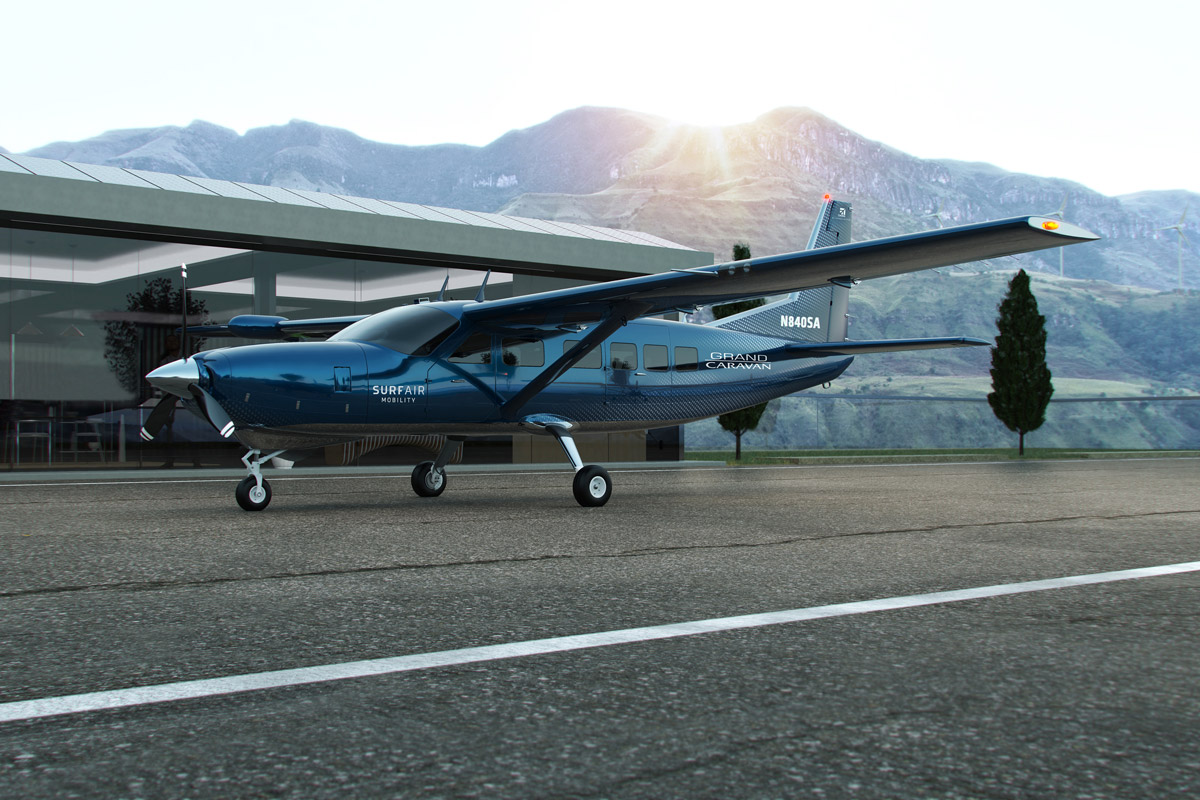Textron Aviation announced that Surf Air Mobility Inc. has confirmed its order and paid the deposit for the first 20 Cessna Grand Caravan EX aircraft to be purchased under its previously announced initial fleet order of up to 100 aircraft with options for 50 additional aircraft.

Deliveries of the aircraft are expected to begin in the first half of 2024. The anticipated initial fleet delivery demonstrates progress in the exclusive relationship between the two companies supporting Surf Air Mobility’s development of an electrified Cessna Grand Caravan EX aircraft.
Surf Air Mobility has announced its intention that the Cessna Grand Caravan EX single-engine turboprops will be upgraded to Surf Air Mobility’s proprietary electric or hybrid-electric powertrain technology. Surf Air Mobility is targeting FAA supplemental type certification in 2026.
“We are excited to see Surf Air’s progress in expanding their fleet with deliveries expected to begin early next year,” said Lannie O’Bannion, senior vice president, Global Sales and Flight Operations. “The Cessna Caravan’s adaptability for passenger and cargo operations makes it an ideal platform for hybrid electric and electric propulsion innovations. This exclusive relationship demonstrates Textron Aviation’s commitment to the future of sustainable flight.”
Surf Air Mobility anticipates that the hybrid electric Cessna Grand Caravan EX aircraft will be utilized by Surf Air Mobility across its own network, connecting more airports with short-haul direct service across the U.S. on a path to creating a regional mass transport platform to sustainably connect communities. Surf Air Mobility will also be the exclusive provider to Textron Aviation of certain battery electric and hybrid electric powertrain technology for the Cessna Grand Caravan.
“Our relationship with Textron Aviation is paramount in our mission to revolutionize air travel,” said Sudhin Shahani, co-founder of Surf Air Mobility. “This initial fleet delivery solidifies our commitment to bringing advanced electric aircraft to market to reduce fuel emissions and the cost of air travel.”

